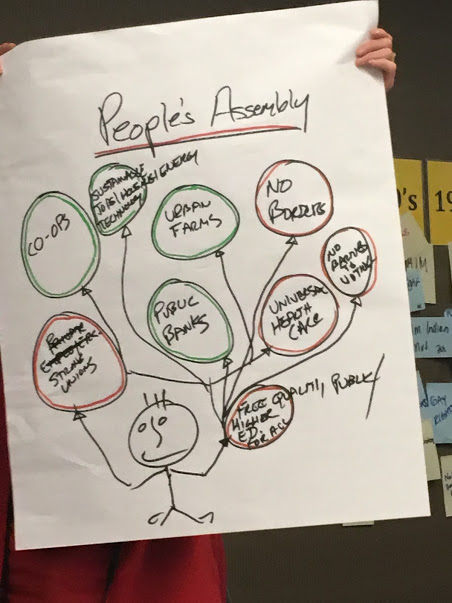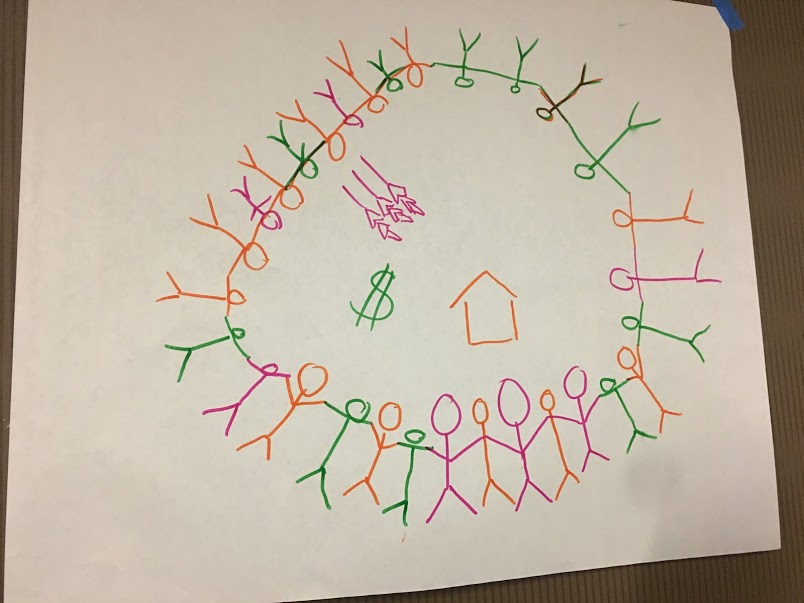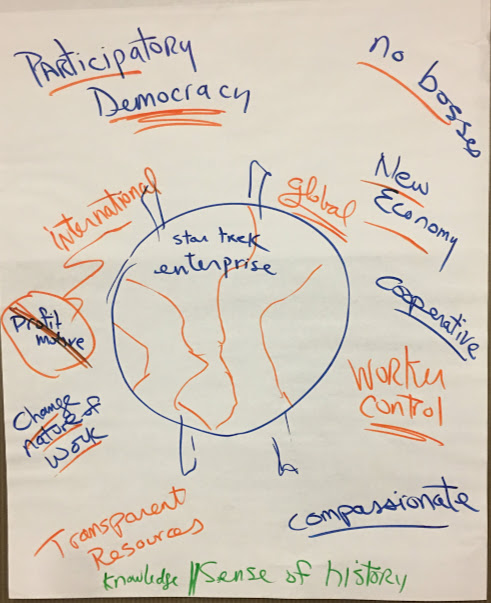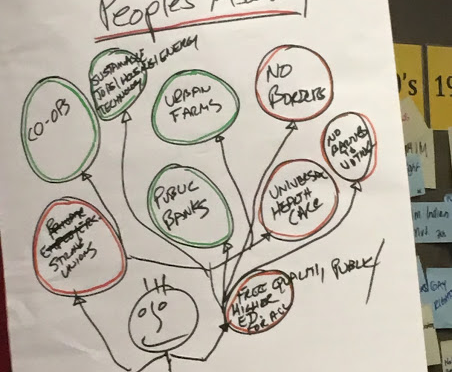By Rebecca Lurie
This month was the bi-annual Labor Notes Conference of the “International Troublemakers and Boat-Rockers Union.” Those who have never been before can imagine it as the place where grassroots union and worker organizers meet union leadership on their terms, led by those previously left out of leadership in our unions. Youth, women and people of color speak, lead and shine.
At this year’s event in Chicago, Verizon workers and teachers led the day. With 3,000 attendees, the conference had workshops and panels celebrating and teaching the hard-learned ways to organize for deepening democracy and justice at work.
The Murphy Institute was there with partners coordinating three workshops about cooperatives. In a dynamic panel illustrating where cooperatives are having impact, we heard from Cooperation Jackson in Jackson, Mississippi, New Era Windows and Doors in Chicago, SEIU1199 and Cooperative Home Care Associates in the Bronx, Trabajadores Democraticas de Occidente, a tire factory in Mexico, and Democracy at Work, NYC. New Era and Trabajadores Democraticas are examples of worker takeovers to worker ownership. Cooperation Jackson shares how, grown from a deep history and strategy for organizing resistance, they are building a new ecosystem for a just and sustainable region.
Two other workshops were primarily dialogues about what might work alongside union organizing and what must be known if unionists and workers were to consider running businesses themselves. The fundamental shift is this: Capital will not own our Labor. Labor will own the Capital. The excitement and empowerment that comes from this solution lands in the hearts and minds and souls of all involved. And we see hope for a new world in the making.

At a workshop by CWA members on Runaway Inequality, the participants were asked at the end, after deepening their understanding of how we got to where we are, what might we now do differently? Without prompts from anyone involved in cooperatives, several tables created images of systems that are based in the Solidarity Economy for economic justice.
A picture says a thousand words when the one word is Solidarity:






